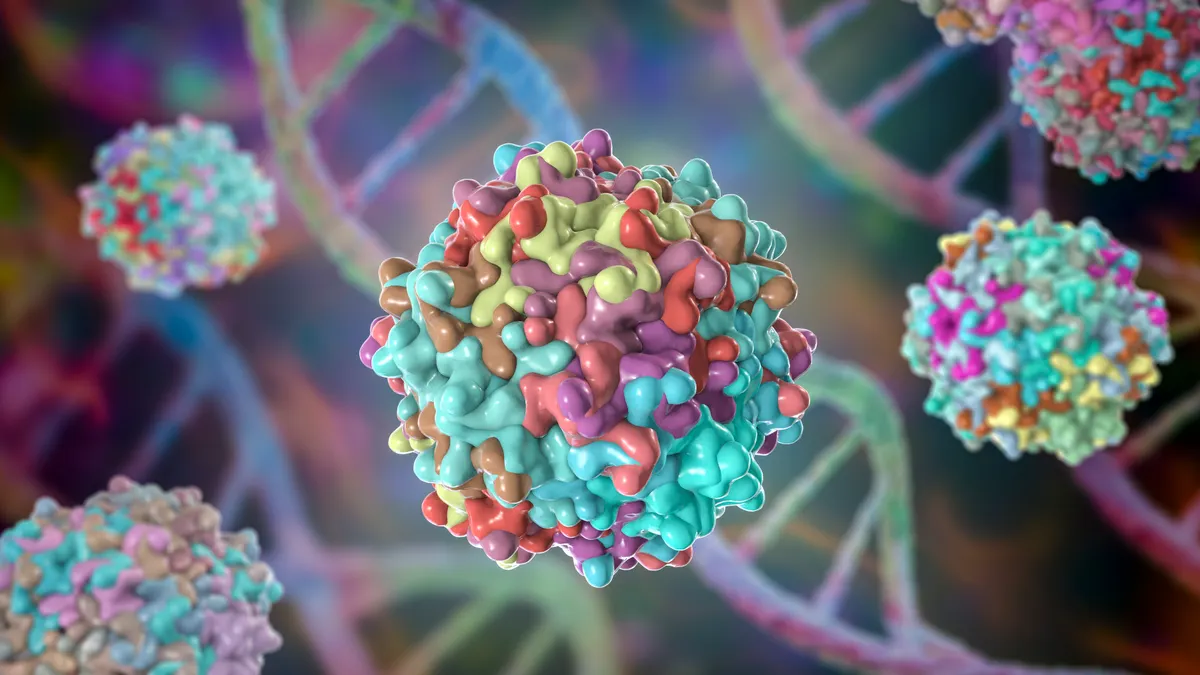A second person with Duchenne muscular dystrophy has died after receiving a gene therapy from Sarepta Therapeutics, leading the company to stop treating certain patients with the medicine, known as Elevidys, while it evaluates new safeguards.
The patient’s death is the second reported by Sarepta since March and, like the first case, was the result of acute liver failure following treatment with Elevidys. Liver damage is a known risk of Elevidys and other gene therapies built around a type of modified virus. However, the two deaths are the first that have been reported among the more than 900 people in clinical testing and commercially who have been treated with the therapy.
In a statement Sunday, Sarepta said both instances involved Duchenne patients who can no longer walk, and that as a result, it is taking steps to “strengthen the safety profile” of Elevidys in those patients. The company plans to immediately convene a group of Duchenne and liver health experts to help devise an “enhanced immunosuppression regimen” for them.
Patients already receive steroids before and after treatment to help manage the risk of a dangerous immune response, for instance. But Sarepta said the panel will assess a new regimen that includes the immune suppressing drug sirolimus, which certain preclinical research has shown to help control the spike in liver enzymes that can be a sign of organ stress. Sarepta will share the panel’s findings with the Food and Drug Administration.
In the meantime, however, Sarepta will no longer ship Elevidys for Duchenne patients who can’t walk until a new regimen is put in place. It is also pausing a trial involving these so-called non-ambulatory Duchenne patients, as well as older study volunteers who can still walk, pending the incorporation of a new protective regimen. That study is meant to confirm Elevidys’ benefits in non-ambulatory patients and, if positive, help convert its accelerated approval in that population to a traditional clearance in the U.S.
No treatment changes are planned for ambulatory patients, according to Sarepta.
“Duchenne muscular dystrophy is a devastating disease that profoundly affects lives and often cuts them far too short,” said Louise Rodino-Klapac, Sarepta’s chief scientific officer and head of research and development, in the company’s statement. “[W]e know how much hope families place in new treatment options like Elevidys — and we are committed to honoring that hope by acting swiftly, guided by scientific rigor and the insights of leading experts, to strengthen safety for all future patients.”
“The second tragic loss following treatment with gene therapy is a devastating reminder of both the promise and the complexity of this emerging therapeutic landscape,” said Parent Project Muscular Dystrophy, a prominent patient advocacy group, in a separate statement. “As we mourn alongside the community, we must also work toward a better understanding of the risks involved and improvement of safety monitoring protocols to ensure that the well-being of every individual remains top priority.”
Elevidys is the product of decades of research and is currently the only gene therapy available for Duchenne, a progressive and fatal muscle-wasting disease. But it was approved by the FDA in controversial fashion, initially for a narrow population in 2023 and then more broadly the following year, despite mixed results in clinical testing that left questions about its benefits.
Sales of the therapy had climbed as a result, making the treatment one of the few gene therapies to achieve commercial success. However, the company recently lowered its financial forecast following slower-than-expected growth, in part because some people had put off treatment while seeking more information about the reported death in March. Elevidys testing was also paused in Europe. Prior to Sunday’s announcement, the company’s share price had already plummeted by more than 70% so far this year amid concerns about Elevidys’ future and the chance new FDA leadership might restrict its use.
The newly disclosed patient death “is likely to further erode perceptions around Elevidys’ benefit/risk” as “uncertainties” around the treatment’s long-term trajectory, “and gene therapies in general,” become “magnified,” wrote RBC Capital Markets analyst Brian Abrahams in a Sunday note to investors.
Abrahams added that it’s possible the FDA simply removes non-ambulatory patients from Elevidys’ prescribing information “until there is clarity” on whether the new regimen reduces safety risks, and that there is a “non-zero chance the drug is pulled altogether.”
Joseph Schwartz, of Leerink Partners, speculated in a separate note that demand among younger, ambulatory patients could be impacted as well.
“Considering the lack of disease modifying options for [Duchenne], we think the risk/benefit of Elevidys remains relatively intact for younger boys,” he wrote. “However, this will cause another reputational hit for Elevidys.”
Roche holds rights to Elevidys in Europe, where the therapy is currently under regulatory review. The company is “urgently working to mitigate any risks related to the use of Elevidys,” said Levi Garraway, Roche’s Chief Medical Officer and head of product development, in a separate statement.






















